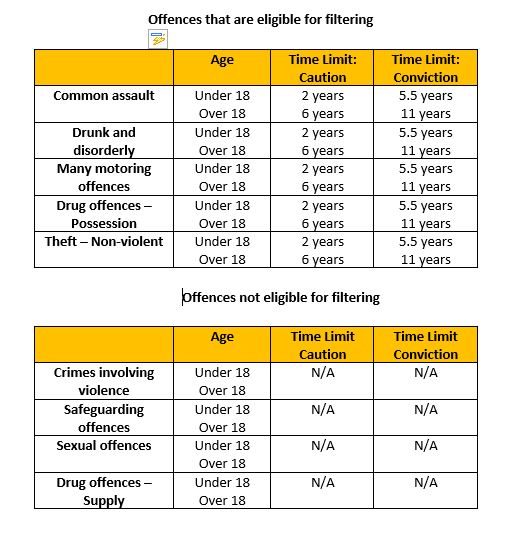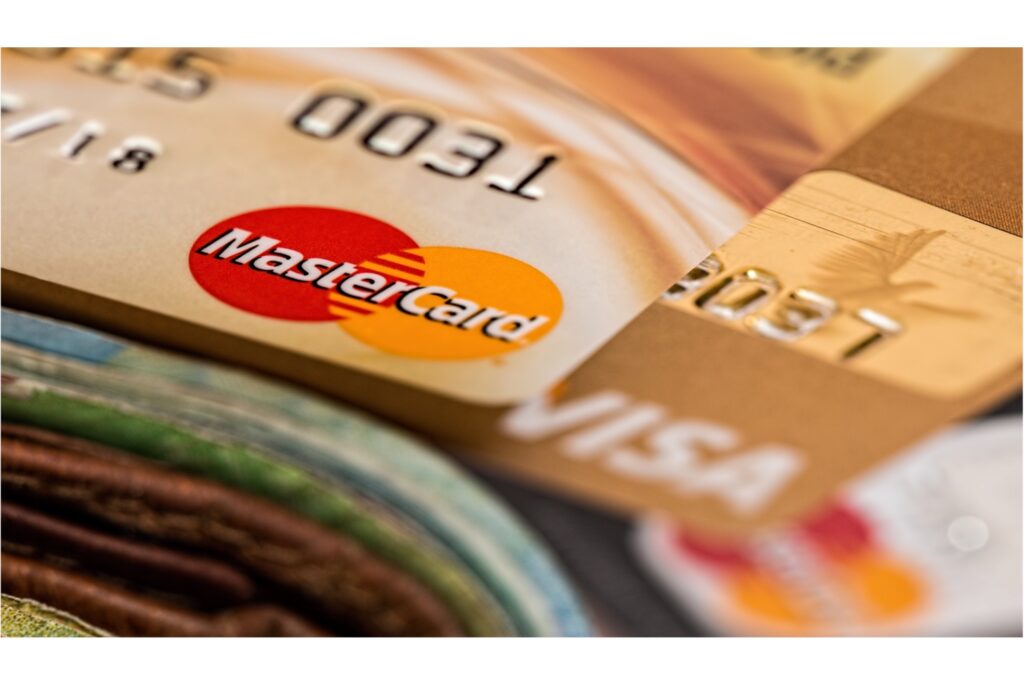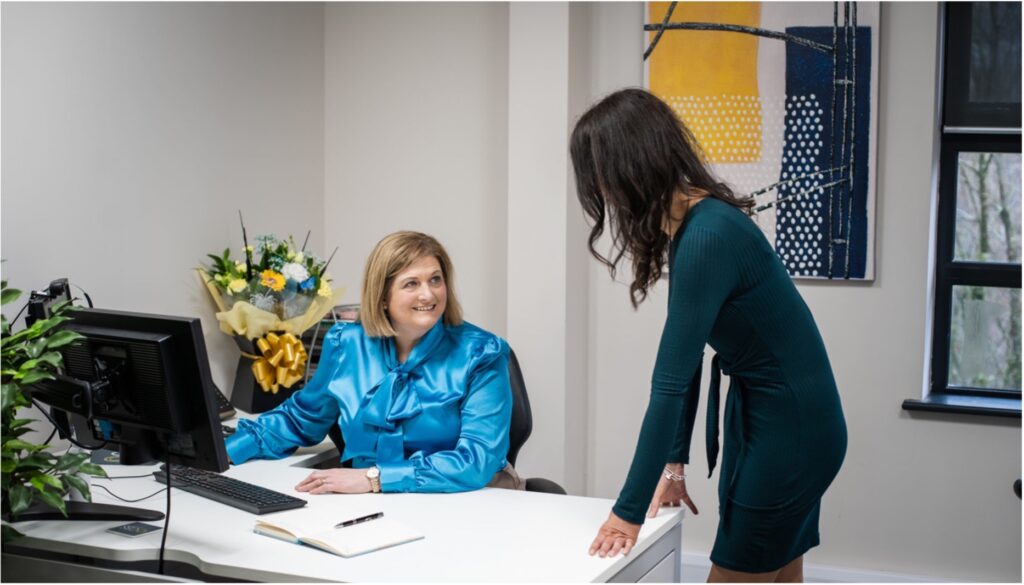10 Things to Know About Background Screening
If you’re new to background screening, there is a lot to learn about DBS checks. So, to make things easier, we have compiled a list of 10 things you need to know about background screening.
1. What is a DBS Check/Employment Background Check?
A Disclosure and Barring Service check (or DBS check for short) is the term used for the analysis and record of a person’s past, looking specifically at any convictions, cautions, reprimands and warnings they may have received.
In some instances, the DBS run checks against the adult and children’s barred list too, depending on the role of an individual or the job for which they are applying.
DBS checks, also known as disclosures, may also include soft intelligence held by the police. This information is not always contained within the Police National Computer (PNC). For example, a person may not have been convicted of a particular offence, but a local police force may have intelligence which should be disclosed as it may affect the suitability of a person for a particular job.
Is There a Difference Between a CRB and a DBS Check?
There is no difference between a CRB and DBS check.
After the publication of the Protection of Freedoms Act 2012 the Criminal Records Bureau (CRB) and the Independent Safeguarding Authority (ISA), were merged in 2012 and given the new title of the Disclosure and Barring Service (DBS).
2. What Are the Different Types of Checks?
There are three levels of disclosure DBS check. The level required will depend on the job and the duties in question. These levels of disclosure are:
Basic level disclosure – this is a non-specific check that is available to anyone who requires certification, and is available to anyone, for any purpose. It is commonly used for personal licence holders, couriers or similar.
Standard level disclosure – this level of disclosure is subject to eligibility in accordance with legislative criteria. This more in-depth check is often required for careers such as accountants or solicitors.
Enhanced level disclosure – this detailed check is also subject to eligibility in accordance with legislative criteria. Individuals who wish to work with vulnerable people will require this disclosure.
3. How Long Does a DBS Check Take?
If you decide to request a DBS check using Complete Background Screening, expect a timescale as follows:
- 85% of enhanced disclosures returned within 5 working days.
- 95% of standard disclosures returned within 5 working days.
- 80% of basic disclosures returned within 10 working days.
On rare occasions, an application may exceed 60 days. In the unlikely event that this happens, we will escalate the application as a priority.
Our average across the UK is 5.4 days for an Enhanced DBS Check with several thousand being returned in less than 24 hours every month.
4. Should My Company Screen Its Employees?
Whether this is a requirement or not will depend largely on your industry.
However, it is recommended that all job applicants, staff and volunteers within an organisation are screened in one way or another. This may not always be a DBS check, as the law may not support it. Your organisation may opt to undertake a basic level disclosure only. Alternatively, CBS can provide a host of additional screening products such as BPSS. BS7858, etc.
The task of verifying work history is something that an employer can in theory do fairly simply by just contacting the former employer of the person in question. However, this presents potential problems as many employers are unaware of what they can and can’t say about a former employer. This becomes a bigger issue should the comments they wish to make be negative in nature. As such, many former employers limit the information they pass on to the more basic facts such as the dates they were employed, their title, job duties and wage.
However, when a background check company like us does the work history check, we can usually provide more relevant details as we know what questions to ask. This will provide information to the employer on what they can and can’t say, while keeping their feedback anonymous and professional.
5. What Jobs Require a Background Check?

Jobs which most commonly involve a background check include:
- educational workers
- healthcare professionals
- government workers
- financial specialists
- computer and IT managers
- child-care workers
While you can conduct a background check on just about anyone for any position, there are specific jobs and positions where a background or DBS check has been standard practice for many years.
If someone is going to be working with children, money or vulnerable adults, then a potential employer will run you through a background check to ensure that you are properly qualified to look after children, check your credit to ensure you can be trusted to handle money, or your work experience when caring for an elderly person with medical issues.
When you decide to run a background check on an applicant, the employer must first get the applicant’s express written permission to do so. Employers should remember that while background checks are very common and a regular part of the application process, the proper steps and consent must be gained first from the applicant before background screening can be carried out.
6. What Will a DBS Check Show?
Various studies show that 60% of CVs contain inaccurate information. It is human nature to exaggerate and over-emphasise certain aspects of our history, work experience or qualifications to improve the chances of getting hired, but not many applicants recognise the seriousness that comes with lying on their CV.
Background checks are the only real way to find out what information is true and what is false or exaggerated. With so many different aspects to consider with a candidate and their CV – such as education, work history, professional licences and criminal history – verification background screening checks are important and essential if you really want to know who you are hiring.
Applicants should always aim to give potential employers the full and accurate truth regarding their history, education and criminal record as a background check with CBScreening will eventually reveal the true picture and lying on a CV could harm an applicant’s chances of securing employment due to lack of trust.
Many employers are understanding and considerate when it comes to an applicant’s less than perfect history. No one is without fault and mistakes are a part of life. Offences such as driving convictions are quite common and are less of a consideration in the employment process than a candidate may think (unless the position is for a driving job, of course). It is always better to get out ahead of these kinds of issues and control the narrative, rather than attempt to cover up any past errors.
However, it could be that the offences that the applicant is concerned about may no longer be relevant due to the time they happened and could now be filtered from an applicant’s personal record.
The following list is an example of some of the most common convictions and when they expire.

7. How Long Does a DBS Disclosure Certificate Last and Can it be Re-Used?
A DBS disclosure check isn’t a licence or a permanent document. It is a snapshot of a person’s record and history up to the point that it was requested. A disclosure can change and be updated a day after it is issued. While the scenario of a disclosure being out of date so quickly is unlikely, it does show the importance of update screening and how quickly an employee’s circumstances can change.
As such a DBS disclosure certificate can be re-used at the discretion of the employer, but it is only as relevant and accurate up to the date it was issued. When considering employing someone new, companies should ensure that they request a current up-to-date background screening check and that the screening they select is appropriate for the position.
8. Can I Request a DBS Check for Myself?
At present, a person cannot request a personal DBS check for themselves. DBS checks are primarily designed and created for organisations and businesses to make the best recruitment decisions with accurate and up to date information. As such only appropriate bodies such as an employer or recruitment agency can apply.
However, should an individual have the need or desire to request a background screening check on themselves, we at CBScreening can offer a Basic Level Disclosure service as these are not job specific and can be used for any purpose– this provides you with all non-spent convictions under the Rehabilitation of Offenders Act 1974 (ROA).
Personal DBS checks are also offered and can be essential for those who are self-employed (e.g. self-employed couriers) and are usually required for the following:
- For visa applications
- For a Personal Liquor/Premises Licence application
- For a new job or volunteer work
9. Do You Search Social Media?

Typically, this isn’t a very common request but CBScreening has run some negative media searches for a few companies to date, but in general it is not a service we are typically asked for.
Depending on the type of job being applied for, a person’s personal social media accounts are not really a good indicator of a candidate’s ability to do a job. There are also legal issues to consider in that employers can easily gain information that is a protected characteristic, such as age, race, religion, medical history and sexual orientation that could influence the hiring decision. The EEOC (the Equal Employment Opportunity Commission) frowns upon social media background checks for this reason.
Employers are not allowed to base their hiring decisions on this type of information and can leave themselves open to legal action should the candidate feel they were not offered the position due to a personal factor such as race.
If a company or organisation does feel that a social media background check is necessary, it is recommended that it only be completed by an impartial background screening company that can properly evaluate a candidate’s social media accounts and would not pass on information such as race or religion that could influence the hiring decision.
10. What is Continual Screening and Why is it Important?
This DBS Update Service is a crucial service for employers and individuals as it helps keep criminal records constantly up-to-date, meaning that all changes to criminal records are logged instantly, leaving employers less vulnerable to any changes in criminal history and saving candidates the stress (and time) of applying for new DBS checks.
The system works by performing regular checks on a person’s criminal history without the need to undertake further criminal checks.
We can check an individual’s criminal disclosure certificate every week, month or quarter to ensure there has been no change to their criminal record and provide real time notifications and alerts if an individual’s criminal record has changed. This vital service has proved invaluable to many customers and is proving to be a unique tool in proactively managing, safeguarding and protecting the reputation of our clients. This service starts from as little as £16 per year per applicant.
Where Can I Get a Background Check
For further information on how to run a background check, please contact our team who will be able to help guide you through the process of conducting background checks. Call us on 01443 799 900 today.
back to news
Enhanced DBS Checks for Taxi Drivers
Currently taxi and private hire vehicle drivers are eligible for enhanced DBS checks. These disclose all spent and unspent convictions, cautions, reprimands and warnings. The exceptions are drivers who are on a contract to transport children and/or vulnerable adults. These drivers are within regulated activity, and therefore are also eligible for checks against the adult’s […]

Manage the risks of holding credit card information.
Are you a business that holds credit card and other monetary information? Then this blog post is for you!

Let’s get back to basics – What you need to know background screening.
At CBS, background screening is at the heart of what we do, so in this blog post we wanted to go back to basics and discuss everything you need to know about background screening.

 Contact Us
Contact Us
